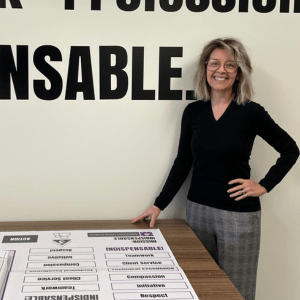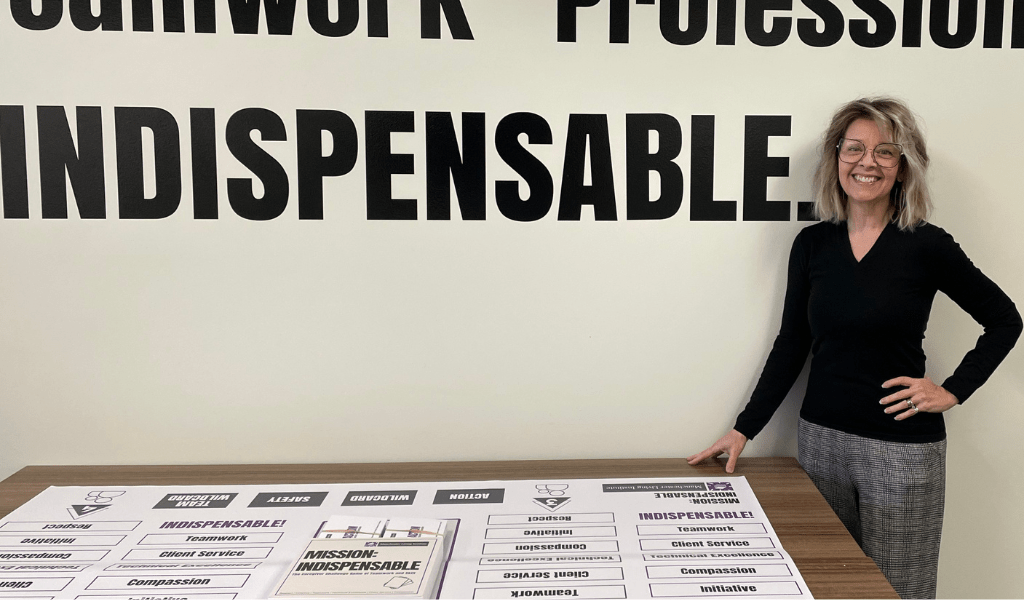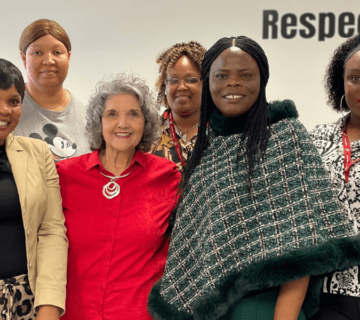Cambridge Rolls Out New Advanced Caregiver Course
Manchester Living Institute Advanced Caregiver Course
- Six-hour training for all 200 Cambridge caregivers
- Rollout in the next 16 months
- Experienced CNAs serving as trainers
- More than $400 invested in each caregiver annually
- Focus on Cambridge values

Tammy HookerChief Listener/Human Resources
“I want clients and their families to feel confident that every Cambridge caregiver who comes into their home will have the skills and the knowledge to make their lives better, and the ability to provide that with respect and compassion.”
“We take excellent care of our caregivers so they can take excellent care of our clients.”
Hi, I’m Tammy Hooker, Chief Listener/Human Resources for Cambridge Caregivers and Manchester Care Homes. I’m excited to tell you about the new training program we’re rolling out now, the Manchester Living Institute Advanced Caregiver Course.
Over the next 16 months, every one of our caregivers will complete this six-hour training program, which emphasizes practical skills as well as Cambridge’s values: respect, initiative, client service, technical excellence, compassion, teamwork, and professional growth.
We crafted our own custom program because we wanted to ensure consistency. I want clients and their families to feel confident that every Cambridge caregiver who comes into their home will have the skills and the knowledge to make their lives better, and the ability to provide that with respect and compassion.
We’ve set up a brand-new, dedicated training space, equipped with tools to give caregivers hands-on training in the safest, gentlest, and most up-to-date techniques such as transfer – lifting and moving a client from a bed to a wheelchair. Seven of our most experienced Cambridge caregivers, all Certified Nursing Assistants (CNAs), serve as the instructors for the course.
As part of the course, we give present hypothetical client “personas” to our caregivers and challenge them to find the best ways to deal with tricky situations that may arise. Caregivers also play board games that review what they’ve learned. I had a lot of fun putting that together!
Our ultimate goal: to make Cambridge caregivers indispensable to clients and their families.
I’m personally excited to roll this program out. Like many people on the Cambridge team, I have personal experience with a caregiving professional who worked for my family years ago. From that experience, I know what it’s like for a family to rely on a professional caregiver. I also know how hard caregivers work and how they truly care about what they do. They’re not always appreciated or valued by our society. For me, this training program is one small way I can help make their lives better by equipping them to do the best job possible.
The training program also offers our team leaders an opportunity to identify each caregiver’s strengths, so that we can match those strengths with each client’s specific needs.
We have a saying at Cambridge Caregivers: “We take excellent care of our caregivers so they can take excellent care of our clients.”
We don’t just say that. We invest in our caregivers, with time and training. We’re spending about $400 for each member of our team of about 200 caregivers. Caregivers are paid during the time they spend attending in-person training programs.
That’s in keeping with the way we support our caregivers. Unlike many of our competitors – which utilize contractors rather than employees to provide services to clients — our caregivers are all W2 employees, eligible for a full array of benefits, including health insurance, dental and vision insurance, retirement savings plans, PTO, and gas stipends.
This new training is in addition to our elective training and support programs, including ongoing quarterly dementia training, delivered by Lilly Adrian, and monthly sessions on “Coping with Grief and Stress,” led by Dr. Tonya Cunningham. Many caregivers develop connections with the people they serve and mourn when they pass away.
We see these investments in our people as the right thing to do – but also good business. We know that, if we can attract and keep the best caregivers, support them in providing consistent service, and make them indispensable to our clients, that’s going to contribute to the success of our business.




